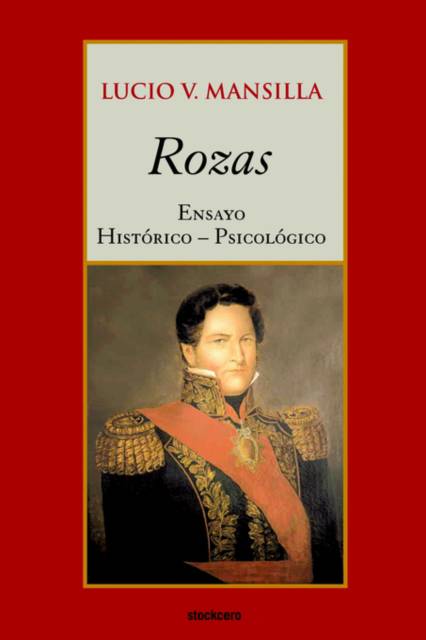
- Retrait gratuit dans votre magasin Club
- 7.000.000 titres dans notre catalogue
- Payer en toute sécurité
- Toujours un magasin près de chez vous
- Retrait gratuit dans votre magasin Club
- 7.000.000 titres dans notre catalogue
- Payer en toute sécurité
- Toujours un magasin près de chez vous
Description
Though Juan Manuel de Rozas has been the topic of several studies and discussions -many still going on in Argentina- this Ensayo Histórico-Psicológico is particularly enlightening beyond the character, as it also sheds light upon the reasons why of the influence Rozas holds upon an important portion of the Argentine ruling class, and as such upon it's history, even recent. Lucio Victorio Mansilla was Roza's nephew, but he also was an illustrated, clear thinking personality, and admirer of social progress. These three qualities led him to support the ideas expressed by Juan Bautista Alberdi and Domingo F. Sarmiento, declared foes of Rozas, whose regime they considered the paradigm of the government system that had to be abandoned in order to get the country into the tracks of progress. The conflict between emotion -the admiring love for Rozas, and loath for his regime- and reason -that understands its incompatibility with progress- is clear throughout this book, whose intention is undoubtedly pacifying. The author wisely points out that "there are no tyrants without a people at his back, thinking as the tyrant himself, feeling, expecting, wanting as he does", and here stands the real value of this Ensayo Histórico - Psicológico, as in spite of the progressive optimism that impregnated Argentina in 1880, the roots of the wanting that led Rozas to instaurate his regime survived all rationality. From our perspective this Essay as it shows the emotion-reason conflict in Mansilla, without expressing it directly it also enlightens upon some deep aspects of this vocation that notoriously impregnates all of Latin America after the failure of the so called "neoliberal" policies of the 90's and today, to use Alberdi's words "of freedoms of this kind Latin America is populated, and it's federations are daughters of liberators of this latin liberalism, in which each governor can say 'mi province is free, and I am it's freedom'"
Spécifications
Parties prenantes
- Auteur(s) :
- Editeur:
Contenu
- Nombre de pages :
- 192
- Langue:
- Espagnol
Caractéristiques
- EAN:
- 9789871136063
- Date de parution :
- 20-03-04
- Format:
- Livre broché
- Format numérique:
- Trade paperback (VS)
- Dimensions :
- 152 mm x 229 mm
- Poids :
- 290 g







